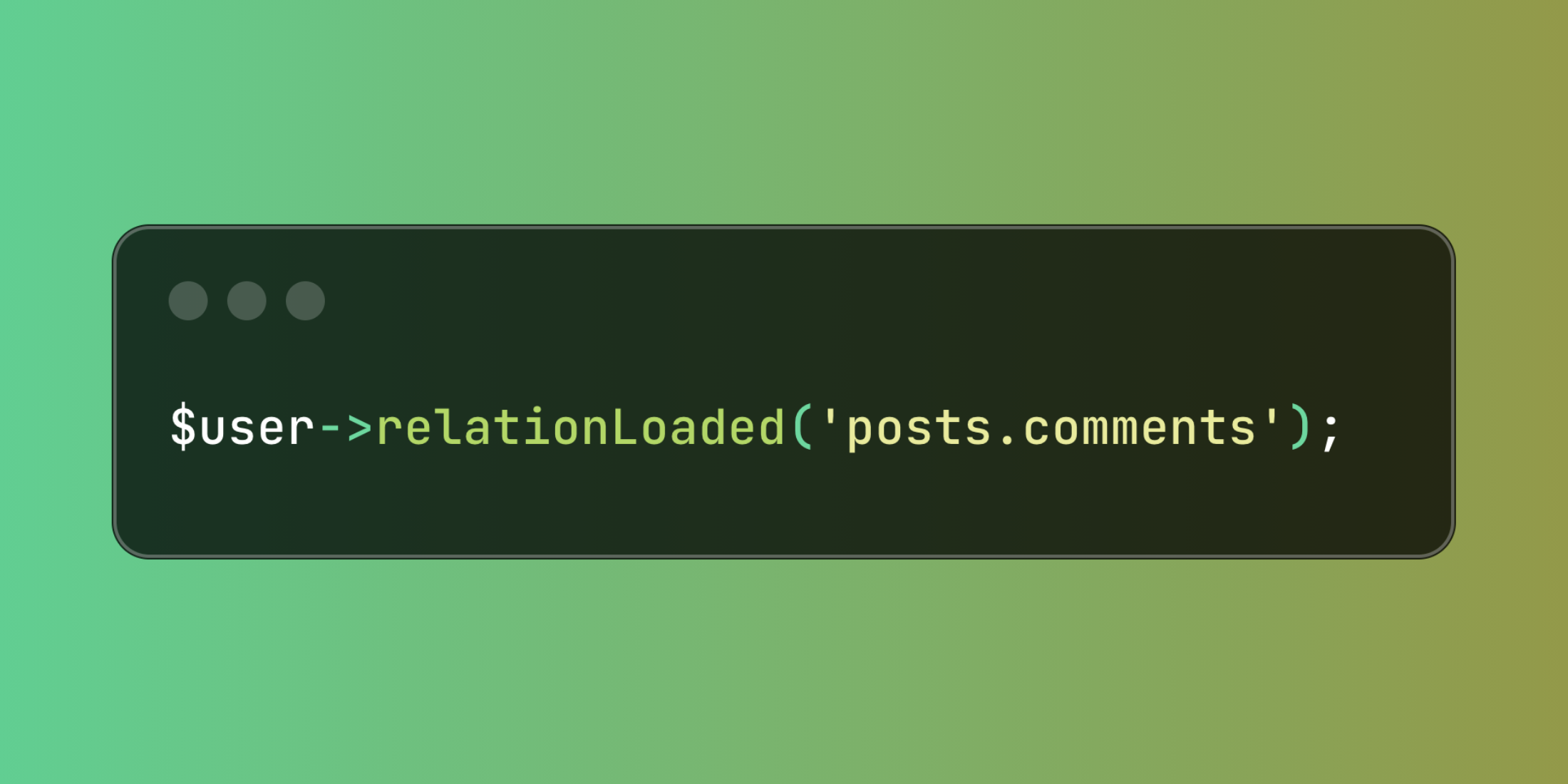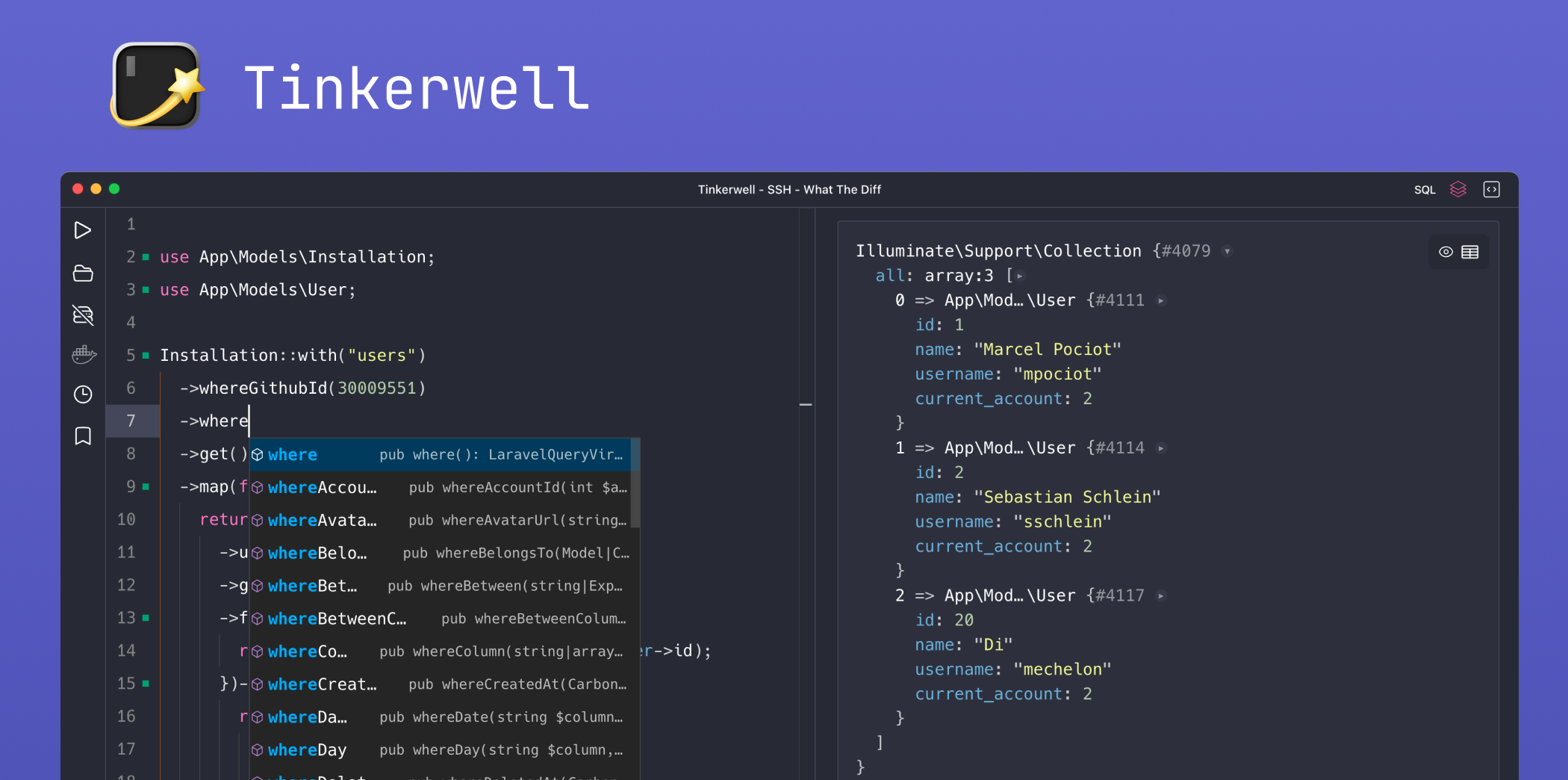Verify Nested Relations Efficiently with Laravel's Enhanced relationLoaded Method
Last updated on by Harris Raftopoulos

Laravel addresses a long-standing inconsistency in relationship verification by enhancing the relationLoaded() method to support dot notation for nested relationships, matching the syntax used for eager loading.
When working with Eloquent models, relationship management forms the foundation of efficient database interactions. Laravel has provided powerful tools for loading nested relationships using intuitive dot notation:
$user->load('posts.comments');This single line loads a user's posts and all associated comments, preventing N+1 query problems while maintaining application efficiency.
However, before Laravel 12.10, verifying these loaded relationships created an inconsistency. The relationLoaded() method only worked for single-level relationships:
// Before Laravel 12.10$user->load('posts.comments'); $user->relationLoaded('posts'); // true$user->relationLoaded('posts.comments'); // falseThis limitation forced developers to write additional verification code or use workarounds:
// Workaround for checking nested relationsif ($user->relationLoaded('posts') && $user->posts->first()?->relationLoaded('comments')) { // Posts and their comments are loaded}Thanks to Mahesh Perera's contribution in Laravel 12.10, the relationLoaded() method now supports the same dot notation used for loading relationships:
// After Laravel 12.10$user->load('posts.comments'); $user->relationLoaded('posts'); // true$user->relationLoaded('posts.comments'); // trueThis enhancement eliminates the inconsistency between loading and verifying relationships, creating more intuitive and error-resistant code.
The improvement simplifies common patterns in Laravel applications. Consider a product catalog system displaying products with categories and reviews:
public function show(Product $product){ // Load only what we need $relations = []; if (!$product->relationLoaded('category')) { $relations[] = 'category'; } if (!$product->relationLoaded('reviews.customer')) { $relations[] = 'reviews.customer'; } if (!$product->relationLoaded('variants.images')) { $relations[] = 'variants.images'; } if (!empty($relations)) { $product->load($relations); } return view('products.show', compact('product'));}This approach prevents unnecessary database queries by loading only relationships that aren't already present, significantly improving application performance.
The enhancement also benefits caching strategies and conditional data processing:
class OrderService{ public function processOrder(Order $order) { // Conditionally load relationships based on current state if (!$order->relationLoaded('items.product.category')) { $order->load('items.product.category'); } // Process order knowing all required data is loaded return $this->calculateOrderTotal($order); } public function generateInvoice(Order $order) { $requiredRelations = [ 'customer.billingAddress', 'items.product', 'payments.method' ]; $toLoad = collect($requiredRelations) ->reject(fn($relation) => $order->relationLoaded($relation)) ->all(); if (!empty($toLoad)) { $order->load($toLoad); } return $this->createInvoiceFromOrder($order); }}The enhanced relationLoaded() method creates consistency between relationship loading and verification, making Laravel's Eloquent ORM more predictable and developer-friendly.
















